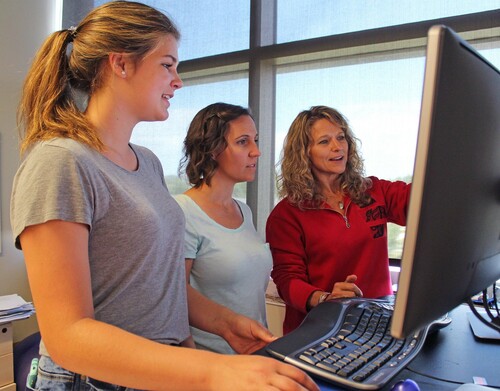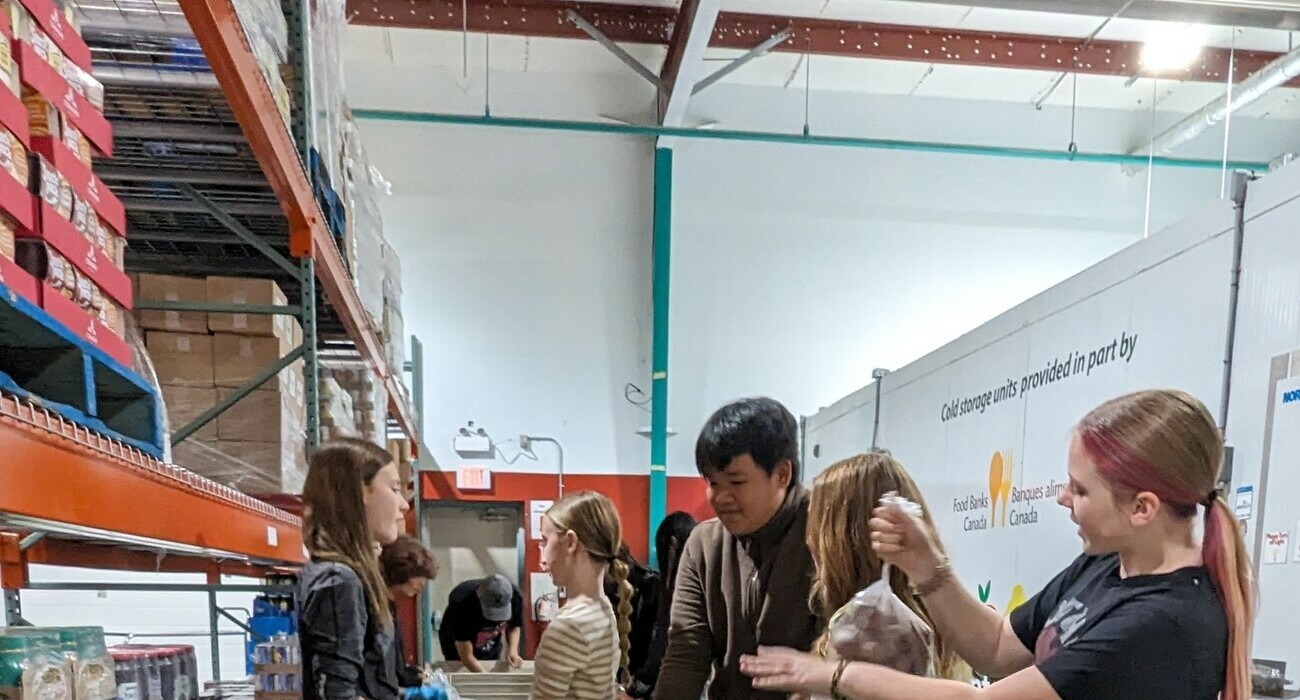
Vanessa Boone isn’t the least bit envious of schoolmates who might be enjoying a lazy summer off.
The 16-year-old is among seven southern Alberta high school students in the midst of six weeks of hands-on research work at the University of Lethbridge as part of the Heritage Youth Researcher Summer (HYRS) program.
“I wouldn’t say it’s taking away from my summer. I think it’s added a great experience,” says the Picture Butte High School student, who would find no lack of chores to do on the family farm if she wasn’t busy on the university campus.
The goal of the HYRS program is to provide Grade 11 students with a glimpse of the university experience so they can prepare themselves for life after high school, says U of L co-ordinator Brett Weighill. That includes taking the right classes in their Grade 12 year, and taking advantage of scholarship opportunities and career supports available.
The program, which pairs up the students with a U of L faculty member for a real life research project, also broadens their views as far as possible career paths, he says.
“Lots of kids coming out of high school think ‘I want to be a doctor, a vet or a teacher,’ ” says Weighill. “We show them a wide variety of jobs and career options available in biomedical and health research here in Alberta, and in Lethbridge specifically.”
Boone isn’t sure what she wants to do after high school, but science is an interest of hers and could be an option. She hopes the summer program might further open her eyes to that possibility as well as provide an opportunity to learn something new and meet new people.
Her HYRS colleagues from Lethbridge and Pincher Creek high schools were selected based on community and teacher references, a written essay, and of course, their grades. While working independently for the most part, the students gather occasionally for lunches, tours and field trips.
“I wouldn’t say there’s a lot of dialogue – we’re all pretty shy,” says Boone, with a chuckle. “But it’s really nice meeting kids that are interested in some of the same things as you.”
She joined Dr. Sienna Caspar and research associate Erin Davis in a research project studying meal times in long-term care facilities and how that effects the quality of life there. Boone says it’s been “super exciting” to see first-hand the impact of their work at the Lethbridge facility where the study is being done.
Each of the students will present their project in a symposium-like setting at the end HYRS program in mid-August. The Picture Butte student admits she’s a bit nervous about the prospect of public speaking, but knows it will pave the way for another presentation she has to make to next year’s Grade 11 students at PBHS in the fall.
It helps that she’ll be promoting a program beneficial to her schoolmates.
“It was something that wasn’t all that well advertised in my school. I think more people should get involved in it and there are definitely students who would have applied if they knew about it,” says Boone.
Students who complete the HYRS program receive a $2,500 stipend. Weighill says that gives the students a taste of the style of funding they’ll experience should they continue on with research work.
“You apply for these grants or opportunities, and people pay you in lump sums,” he says, adding the payment highlights a summer job opportunity beyond fast food restaurants and the like. “Lethbridge is a wonderful epicentre of science research. We have tons of institutions and facilities here that are looking for labour from curious, driven, and interested students.”
The research labs at the U of L are full of former HYRS participants, points out Weighill.
“You pick a recruit straight out of high school and train them to be exactly what you need. And if that’s what the student wants as well, then it’s a perfect co-existence,” he says.
The HYRS program is funded and supported by Alberta Innovates, which has a mandate of improving the health and wellbeing of Albertans and creating, through innovation, health related social and economic benefits for Albertans.

